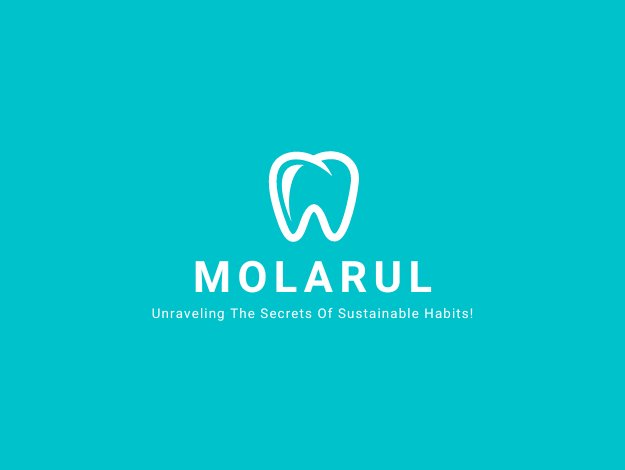
Molarul – Unraveling The Secrets Of Sustainable Habits!
In dental health, specific terms evoke curiosity and intrigue, whispered in hushed tones among professionals yet often shrouded in mystery to the wider public. One such term is “Molarul” Despite its obscurity.
Molarul, also called molar tooth disorder, encompasses a range of conditions and holds profound significance in dentistry. It impacts the lives of individuals who grapple with its symptoms.
In this comprehensive guide, we embark on a journey to demystify Molarul, exploring its nuances, symptoms, diagnosis, treatment options, and practical advice for maintaining optimal oral health.
What Is Exactly The Term Molarul? – Unlock The Secrets To Optimal Dental Health!
The term “Molarul” may sound unfamiliar to many, yet its significance in dental health is profound. Often whispered in the halls of dental clinics, Molarul refers to a condition affecting the molars, the sturdy teeth located at the back of the mouth crucial for chewing and grinding food.
While its name may be obscure, Molarul’s impact extends far beyond mere dental jargon. It often causes discomfort, sleepless nights, and dietary restrictions for those affected.
In this comprehensive guide, we embark on a journey to demystify Molarul, shedding light on its symptoms, causes, diagnosis, and treatment options, empowering individuals to prioritize their dental health and unlock the secrets to optimal oral well-being.
Understanding Molarul requires delving into its symptoms and underlying causes. From poor dental hygiene to cavities, bruxism (teeth grinding), and dental trauma, various factors contribute to the onset of Molarul.
Symptoms such as a toothache or throbbing pain, sensitivity to temperature, difficulty chewing, swelling, and foul taste or odour in the mouth underscore the importance of timely diagnosis and intervention.
By identifying dental issues early and undergoing a thorough evaluation, people can begin a journey towards successful treatment. This will not only alleviate any discomfort but also safeguard the longevity of their valuable molars for the future.
The Impact Of Molarul On Daily Life – Implementation!
- Disrupted Eating Habits: Molarul can lead to discomfort while chewing, causing individuals to avoid certain foods or modify their diet to alleviate pain.
- Sleep Disturbances: Persistent toothache or sensitivity associated with Molarul can result in sleepless nights, impacting overall well-being and productivity.
- Difficulty in Speaking: Individuals with Molarul may experience difficulty articulating words or speaking clearly, affecting communication in social and professional settings.
- Emotional Toll: Constant pain or discomfort from Molarul can lead to frustration, irritability, and stress, affecting mental health and quality of life.
- Impact on Social Activities: Molarul may limit participation in social events or activities that involve eating, speaking, or smiling confidently, leading to social withdrawal or isolation.
- Work Productivity: Employees dealing with Molarul may experience decreased concentration, focus, and productivity due to persistent pain or discomfort.
- Financial Burden: Managing Molarul may entail expenses related to dental treatments, medications, or missed workdays, creating financial strain for individuals and their families.
- Overall Quality of Life: Molarul can significantly diminish the overall quality of life, affecting physical, emotional, social, and financial aspects, highlighting the importance of effective management strategies.
The Role Of Nutrition In Molarul Management – Optimizing Nutrition!
Limit Sugary Foods and Beverages:
Eating too much sugar can cause tooth erosion and cavities, making Molarul symptoms worse. Choose healthier eating options like fruits and vegetables instead.
Increase Calcium Intake:
Calcium is an essential element for maintaining strong teeth and bones. Add dairy products( milk, eggs, youghrt), leafy greens vegtables, and fortified foods into your diet to support dental health.
Stay Hydrated:
Staying well-hydrated by drinking ample water can effectively flush out food debris and harmful bacteria, lowering the chances of experiencing dental problems. Strive to consume at-least 8 glasses of water daily to maintain optimal oral health and moisture in your mouth.
Choose Tooth-Friendly Snacks:
Snack on crunchy vegetables or fruits like apples, carrots, and celery, which help clean teeth and stimulate saliva production, promoting oral health.
Avoid Acidic Foods and Drinks:
Acidic foods and drinks can deteriorate tooth enamel, leading to sensitivity and tooth decay. Take acidic foods in limited amounts like citrus fruits and vinegar-based dressings.
Include Vitamin C-Rich Foods:
Vitamin C play an essential role for gum health and collagen production. Incorporate foods like oranges, strawberries, and bell peppers into your diet to support gum tissue and prevent inflammation.
Practice Good Oral Hygiene:
While nutrition plays a significant role in Molarul management, it’s equally important to maintain proper oral hygiene habits. Brush your teeth daily, floss regularly, and visit your dental healthcare for routine check-ups to keep your teeth and gums healthy.
Patient Education – Empower Yourself With Knowledge!
Knowledge holds immense power in the realm of healthcare. Providing patients with education is essential in enabling them to participate to control their health and overall well-being.
Healthcare providers empower patients to make well-informed decisions and proactively improve their health outcomes by offering accurate, detailed information on their conditions, treatment choices, and preventive strategies.
Empowering patients with knowledge fosters a sense of autonomy and control over their health journey. When patients understand their conditions, they are better equipped to collaborate with healthcare providers, ask pertinent questions, and participate actively in developing personalized treatment plans.
Moreover, patient education promotes adherence to treatment regimens, encourages healthy lifestyle choices, and enhances overall self-management skills, ultimately leading to improved health outcomes and quality of life.
Children’s Dental Health – Building Healthy Smiles For Life!
Start Early:
Teach kids about dental care as soon as their first teeth appear. Brushing becomes a fun habit!
Regular Dentist Visits:
Going to the dentist isn’t scary! Regular check-ups help keep their smiles healthy.
Brushing Fun:
Show them how to brush in small circles. Sing a song or use a timer for two minutes.
Eat Teeth-Friendly Foods:
Crunchy veggies and calcium-rich foods like cheese help make their teeth strong.
Toothpaste Tricks:
Use a pea-sized amount of fluoride toothpaste. It’s like magic for keeping cavities away!
Teamwork Time:
Help them brush until they’re old enough to do it alone, around 6 or 7 years old.
Special Shields:
Dentists can paint on magic sealants to protect teeth from sugar monsters.
Happy Dental Trips:
Make dental visits fun! Play games, read books, or bring a favourite toy.
Game Face On:
Mouthguards are like superhero shields for sports, keeping teeth safe during playtime.
Be Their Hero:
Show kids how to care for their teeth by doing it together. Let’s keep those smiles sparkling!
FAQs
Why is it important for children to see a dentist regularly?
Regular dental visits are necessary for children to maintain good oral health. Dentists can detect any issues early, provide preventive care, and teach proper brushing and flossing techniques.
When should my child first visit the dentist?
The American Academy of Pediatric Dentistry is advised that children should have their initial dental check-up either when they turn one year old or within six months of their first tooth emerging.
How can I help my child overcome the fear of the dentist?
You can help ease your child’s fear by talking positively about dental visits, reading books about visiting the dentist, and letting them know what to expect during the appointment.
What are dental sealants, and how do they help prevent cavities?
Dental sealants are a protective barrier that is thinly applied onto the chewing surfaces of the molars to prevent cavities. They work by sealing off food particles and bacteria that can lead to decay.
Conclusion:
Molarul is paramount for ensuring optimal oral health. By demystifying this condition and providing comprehensive information on symptoms, causes, and management strategies, individuals can take proactive steps towards treatment and prevention. Moreover, educating patients is vital in enabling them to make knowledgeable choices regarding their dental well-being, resulting in enhanced results and a better quality of life. Moreover, placing emphasis on the dental health of children at a young age establishes the groundwork for sustained oral health, stressing the significance of routine dental appointments, correct oral care practices, and preventive measures like dental sealants.





